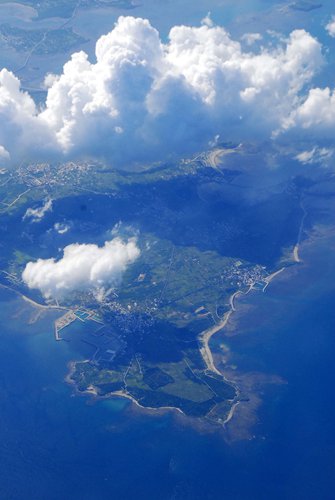HOME >> OPINION
Arms purchase puts Taiwan at risk
Source:Global Times Published: 2019/8/21 21:28:40

Taiwan Straits Photo: VCG
The US State Department formally announced on Tuesday that the US government had decided to sell $8 billion in military equipment, including 66 new F-16V fighter jets, to the island of Taiwan. The plan still needs congressional approval but it is unlikely to be turned down.
This is the largest-ever US arms sale to the island, which will definitely impact the China-US relations and the situation across the Taiwan Straits.
Taiwan regional leader Tsai Ing-wen's authorities consider the arms purchase a big political score and will try to use it to convince Taiwan people that the US is reliable in protecting the island and that the radical policy of the Democratic Progressive Party (DPP) is secure, hoping the arms sale could help get Tsai reelected as the regional leader in 2020.
Taiwan's military buildup is meaningless when compared with the People's Liberation Army (PLA), which is getting increasingly stronger. Most analysts believe that it will only take the PLA hours to take down the island if the mainland resorts to force. It doesn't matter what weapons the island has purchased.
What Taiwan needs most to keep itself safe is to hold the political bottom line rather than picking a wrong path that leads to the extreme condition, in which the PLA has no alternative but to take decisive action. The major arms purchase could probably bring the island greater risks instead of security.
Taiwan must never try to promote de jure independence. If the island goes toward the direction with the salami-slicing strategy, it will only accumulate risks for itself. Taiwan must not act as a puppet of the US to contain the Chinese mainland. Otherwise, it will only find a dead end. The US won't be able to protect it and the Chinese mainland will definitely not let it have its way.
Taiwan considers Chinese mainland-US tensions an opportunity to develop its ties with the US. The island has been trying to get involved in the US Indo-Pacific Strategy, proactively enhancing its role as a leverage of the US to strategically contain the Chinese mainland. It is a very risky move.
The higher cost and the risk of resorting to force is an important reason the Chinese mainland upholds peaceful reunification. Once the island's authorities, by cooperating with the US, sharply increase the mainland's cost of maintaining peace across the Taiwan Straits, the mainland will certainly reconsider its peaceful reunification policy and deliberate on other options.
If the Taiwan authorities insist on going their own way, the PLA will likely take action against the island to either liberate the island or deter and alert Taiwan secessionist forces. If the island's authorities are bent on their wrong way, the mainland will increase military pressure on the island. Simultaneously, the probability of cross-Straits military frictions will grow, which will boost the likelihood that the PLA will take forceful military measures to punish the island. The DPP will pay for its ventures.
Posted in: EDITORIAL